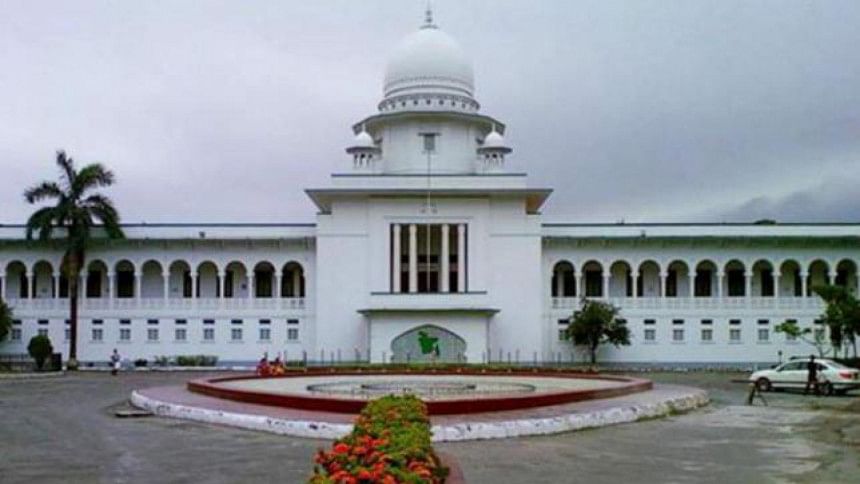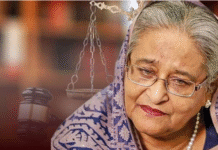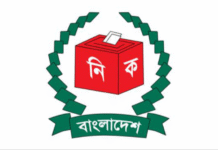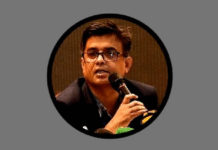
The interim government has issued an ordinance for recruitment of competent judges in the two Supreme Court divisions through a seven-member Supreme Judicial Appointment Council led by the chief justice.
Even though the constitution mandates formulating a law for appointments of judges in the appellate and High Court divisions, none of the previous governments did it.
Yesterday, President Mohammed Shahabuddin issued the Supreme Court Judge Appointment Ordinance, 2025.
It says that an SC judge cannot be younger than 45.
Members of the appointment council are the most senior and a retired judge of the Appellate Division, two senior judges from the High Court Division, the attorney general and a professor of law or legal expert nominated by the chief justice.
The SC registrar general will act as the secretary of the council ex-officio. The registrar general’s office must render necessary secretarial assistance for the council, according to the ordinance on which a gazette notification was issued yesterday.
Law Adviser Asif Nazrul yesterday told reporters that people for years wanted appointment of experienced, efficient, non-partisan and genuinely qualified individuals as judges through a transparent process.
“I hope that the judges will now be appointed to the Supreme Court through a transparent and accountable process,” he said.
The council will collect the names of potential candidates, he said.
“At the same time, there is a system allowing any person, any lawyer, to apply [for the posts] or nominate someone. The council will conduct interviews after the initial scrutiny.”
The law adviser hoped that the next appointments to the post of judges in the High Court will be given in this process.
Under the previous administration, he said, “there was no redress for people. The reason for this was that political governments appointed judges to the High Court… purely on partisan considerations. A former judge had commented… that the appointments of High Court judges had been catastrophic.
“If competent and impartial persons are not appointed as judges in a transparent process in the High Court, then the question of human rights of the country’s 17 crore people remains unresolved.”
The ordinance states that the qualifications of the candidates for the posts of SC judges will be considered by the council as their minimum qualifications have already been mentioned in articles 95 and 98 of the constitution.
The council will consider the candidate’s educational qualifications, professional skills, experience, publications and training; information relating to the conviction of a candidate in a criminal case; special knowledge and skills of the candidates in a particular area of law; overall knowledge, wisdom, honesty, reputation, respect for law and other relevant matters, according to the ordinance.
The council will consider the number of cases disposed of by an additional HC judge; his or her quality of judicial orders and decisions; court management capacity; overall efficiency; honesty; reputation and relevant matters as qualifications for his or her appointment of a permanent HC judge.
It will evaluate the seniority of an HC judge; number of cases disposed of by him or her; his or her quality of judicial orders and decisions; court management capacity; overall efficiency; honesty; reputation and relevant matters as a judge of the Appellate Division, according to the provisions of the ordinance.
All meetings of the council will be held at the time and place fixed by its chairperson, the chief justice.
A meeting of the council will be convened at least two months before the expiry of the appointment of an additional judge of the HC.
The quorum for a meeting of the council will be formed in the presence of at least five members.
The council can convene applications from the candidates for the posts of additional judges of the HC through a public circular.
For the purpose of this ordinance, the government can in consultation with the council make rules.
The chief justice will forward the recommendations made by the council to the president in accordance with Article 95 (1) of the constitution.
The president will pick the judge from the individuals recommended by the council within 15 days.
If the president disagrees with the advice of the chief justice, he may refer the matter to the chief justice for review, mentioning the relevant information and reasons, according to the ordinance.
On November 28 last year, the SC sent a proposal to the law ministry to incorporate the provision for constituting the council to select competent candidates for the judges’ posts in the Appellate and High Court divisions.
The council, at the request of the president, will issue a public notice inviting applications from the candidates, according to the proposed ordinance. After receiving applications, the council will send recommendations to the president for the appointment of judges under articles 95 and 98 of the constitution, the SC said in the proposal.
On December 11 last year, the Judiciary Reform Commission submitted a preliminary report to the government suggesting to constitute a nine-member commission led by the chief justice for the appointment of SC judges to ensure the selection of duly qualified people.
WHAT CONSTITUTION SAYS
Article 95 (1) of the constitution states that the chief justice shall be appointed by the president, and the other judges shall be appointed by the president after consultation with the chief justice.
A person shall be qualified for appointment as a Supreme Court judge if he or she has “qualifications as may be prescribed by law”, according to article 95(2) (c).
Article 98 states that the president may appoint one or more qualified persons as additional judges of a division of the SC. The tenure of these judges will not exceed two years as the president may specify.
Or, the president may require a judge of the High Court Division to sit in the Appellate Division for any temporary period.
“Provided that nothing in this article shall prevent a person appointed as an additional judge from being appointed as a judge under article 95 or as an additional judge for a further period under this article,” article 98 adds.
Daily Star









